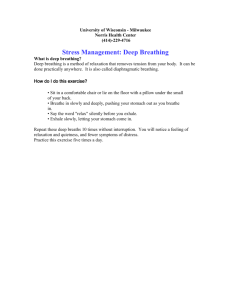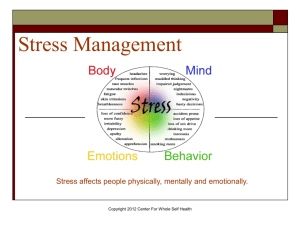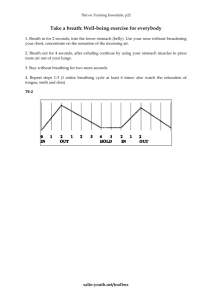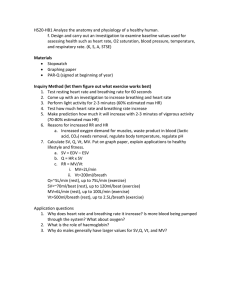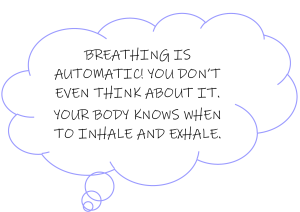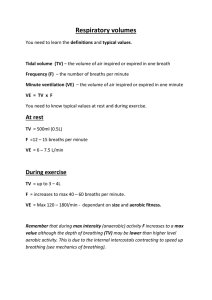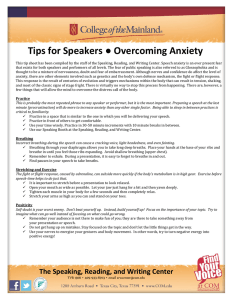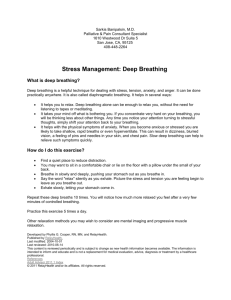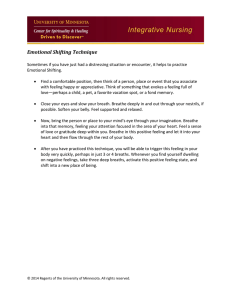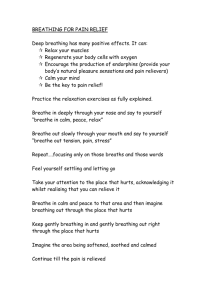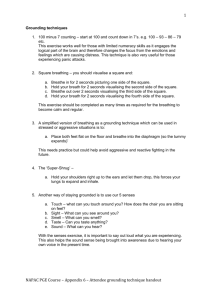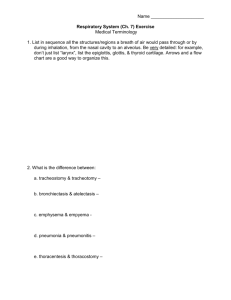COPING WITH EXAM S T R E S S
advertisement
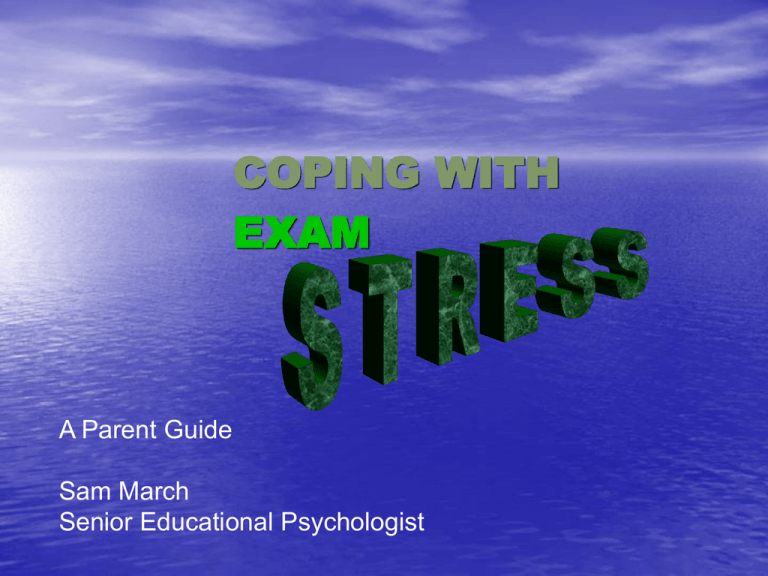
COPING WITH EXAM A Parent Guide Sam March Senior Educational Psychologist Is Stress Helpful or Harmful Zone of Optimal Performance P E R F O R M A N C E Distress Eustress No Stimulation Optimal Stress Extreme Stimulation • • • • • • • • • • • Signs of a Stressed-out Teenager Anger Excessive Worries Depression Mood swings Anxiety Forgetfulness Tiredness Poor concentration Profuse sweating Lack of interest in studies despite efforts made Changes in sleep or eating patterns Watch Out!— Your Child’s Greatest Stressors 1. Unrealistic or unreasonable expectations 2. Excessive competition 3. Low self esteem & self worth 4. Nagging, belittling, comparing 5. Last minute preparation 6. Lack of trust and friendship 7. Conflict 8. Life change Preparing • Timetabling • Study Skills • Length of study sessions ( 2 x 45 minutes then break?) • Time of day? • Subject breadth • Peer revision? • Expectations re chores etc • Build in pampering Stress reducers /valves 1. Positive Attitude 2. Rest & Recreation a. Sleep b. Breaks c. Exercise (fresh air/sun) 3. Good nutrition habits a. Wholemeal rice/bread b. No sugar/caffeine c. 8 glasses of water daily d. Fruits & vegetables Stress reducers /valves 4. Autonomy & Space 5. Support and guidance/ problem solving 6. Affirmation & Praise 7. Empathic Listener 8. Unconditional love & regard 9. Rewards not sanctions Breathing techniques Relaxation routine Stress can make you start breathing with quick, shallow breaths and make your heart beat faster than usual. If this happens, sit down somewhere comfortable, if possible. Place one hand on your stomach and check how quickly you are breathing. If it’s one breath every couple of seconds, take a deep breath and start counting steadily. Breathe out slowly and try to get the last of the breath out on about five seconds. Carry on doing this until you are doing it naturally. Close your eyes and breathe slowly and deeply Locate any areas of tension and try to relax those muscles; imagine the tension disappearing Relax each part of the body, from your feet to the top of your head As you focus on each part of your body, think of warmth, heaviness and relaxation After 20 minutes, take some deep breaths and stretch Find Out More • Pastoral Care • http://www.childline.org.uk • http://www.mind.org.uk/ For those wanting to look at complimentary therapy options • http://www.bcma.co.uk/ Thoughts Feelings Behaviours Coping
